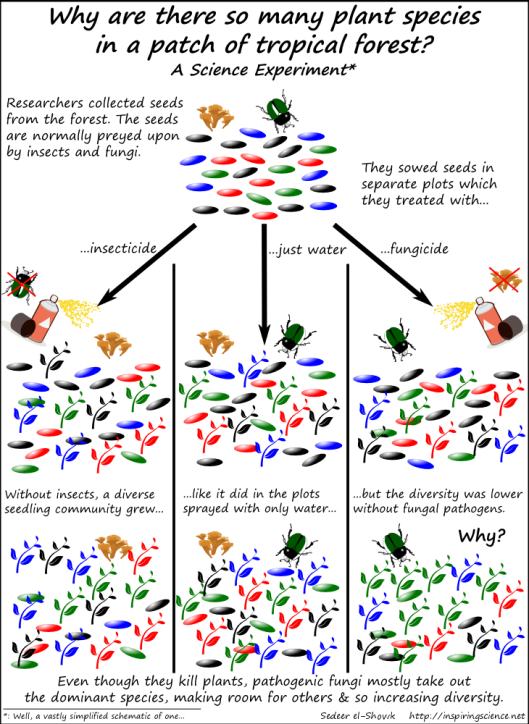 Since plants generally can’t move around, they have to rely on other strategies to cope with animals eager to turn them into a meal. Chemical weapons are a significant part of plants’ defensive arsenal. For example, thousands of plant species produce precursors of the deadly poison hydrogen cyanide; when an animal eats the plant, the precursors get converted into cyanide, which kills the offending animal. Continue reading
Since plants generally can’t move around, they have to rely on other strategies to cope with animals eager to turn them into a meal. Chemical weapons are a significant part of plants’ defensive arsenal. For example, thousands of plant species produce precursors of the deadly poison hydrogen cyanide; when an animal eats the plant, the precursors get converted into cyanide, which kills the offending animal. Continue reading
How Some Critters Evolved to Eat Poison
12 Thursday Jun 2014
Posted in Arthropods, Evolution, Insects, Plants




You must be logged in to post a comment.